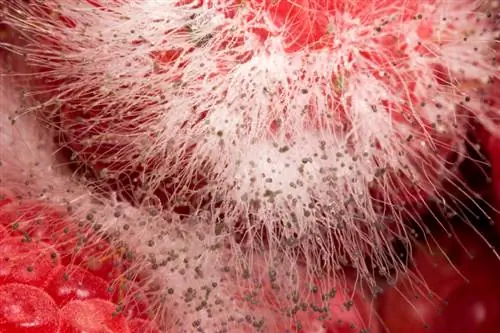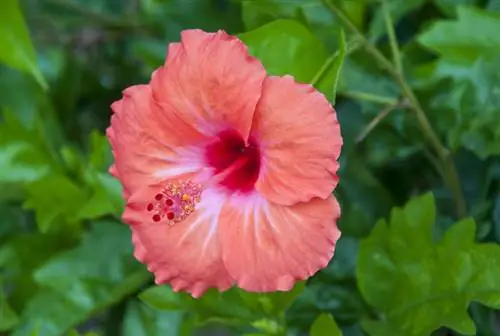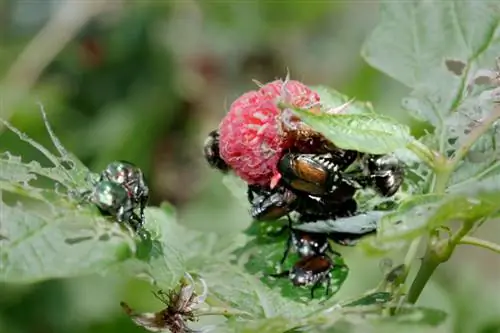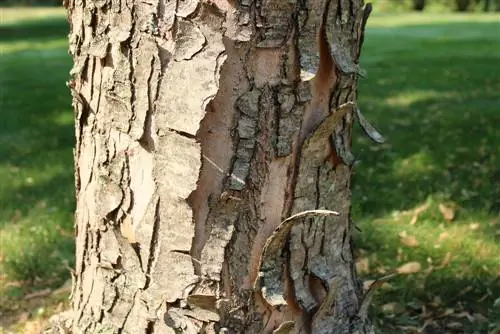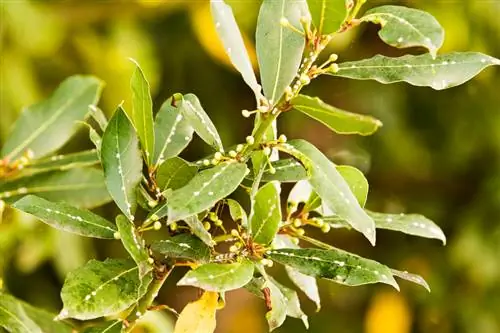- Author admin leonars@hobbygardeners.com.
- Public 2023-12-16 16:46.
- Last modified 2025-01-23 11:19.
The joy of having raspberries in the garden is quickly spoiled when the bushes become diseased and bear little fruit. This is how you can tell what your raspberries are suffering from and how you can fight the diseases.
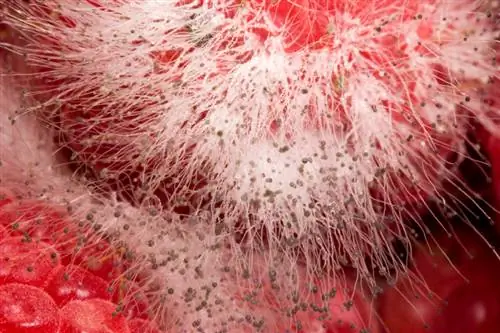
What diseases occur in raspberries and how do you fight them?
The most common raspberry diseases include red root rot, cane disease, fruit rot and focal spot disease. Control the diseases by removing affected plant parts, applying plant broths or fungicides as needed. As a preventative measure, you should pay attention to adequate ventilation and disease-resistant varieties.
The most common diseases of raspberries
- Red root rot
- rod disease
- Fruit rot
- Focal spot disease
Symptoms of red root rot
If your raspberry only produces weak buds, you should take a look at the roots. If these are brownish to gray in color, it is root rot.
It is primarily caused by waterlogging. The rain or irrigation water cannot drain away properly. This causes fungi to develop that attack the roots and later also the canes.
Make sure that the soil is completely loose when planting. Since the fungal spores spread throughout the garden, moving the plants is of little help. Cut off affected canes and discard them.
The rod disease
This is also a fungal disease. It primarily attacks perennial shoots. The fungus attacks the canes so that they are no longer supplied with nutrients. They die and must be removed.
As a preventative measure, choose a bright location. Thin the bushes regularly, as too many canes encourage the fungus to spread. Remove weeds from under the bushes regularly.
Autumn raspberries are very rarely affected by the disease. Since the canes are cut back immediately after harvesting, no perennial shoots remain on the bush.
Fruit rot
You can recognize this fungal disease when the fruits on the bush begin to mold. The damage begins as early as flowering.
Collect and discard all affected fruit. Spraying with plant broths made from field horsetail can help. Often the only option is to administer chemical fungicides.
Focal spot disease
If small, purple spots form on the young canes, it may be focal spot disease. Although this disease occurs frequently, it usually does not affect crop yield. Simply cut off infected canes.
Tips & Tricks
When planting new raspberries, look for fungus- and disease-resistant varieties. There are now some varieties on the market that are much more robust and can cope better with pathogens.

